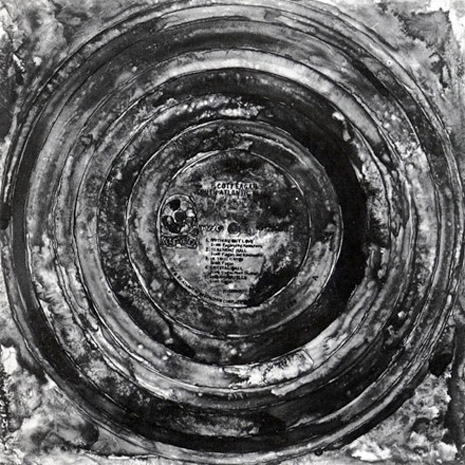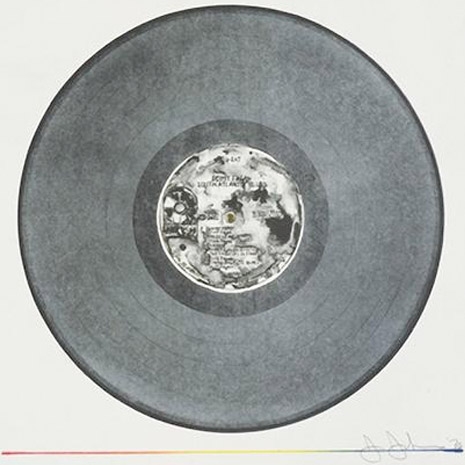
The great obscure-but-influential figures of the rock era are pretty much the lifeblood of Dangerous Minds’ music coverage, but this one tilts way more towards the obscure than the influential. Scott Fagan is one of those amazing, unjustly lost figures in rock history—a man who made brilliant work that unaccountably disappeared, though it had every chance at widespread attention. He doesn’t even have a Wikipedia page.
Born to a New York saxophonist father and dancer mother in 1945, Fagan was raised by his mother in an arts colony in St. Thomas, and he often made for the mainland to join his father on tour. In the mid ‘60s he began gigging with rock bands, and on a trip to New York, Fagan landed a successful audition with the legendary songwriter Doc Pomus, with whom he’d write “I’m Gonna Cry Til My Tears Run Dry,” which would be performed by Linda Ronstadt, among others. Within a month, Fagan was signed to Columbia Records and writing with another legendary credit, Burt Burns. That didn’t last, but he’d soon enough be courted by Apple Records as their first non-Beatle artist (didn’t happen, obviously), and he’d end up with the Atlantic subsidiary ATCO, who in 1968 released his legendary lost solo debut, South Atlantic Blues.
South Atlantic Blues was an eccentric, genre jumping pop/psych/folk masterpiece that, much like Skip Spence’s now-revered Oar, sank like a cinderblock. It wound up being one of those albums that was basically worshiped by everyone who’d heard it, but “everyone who’d heard it” wasn’t a big enough number to register anywhere. Who knows why, and it’s not like that doesn’t happen ALL THE TIME; the dollar bins of the world still harbor undiscovered gems. But given Fagan’s connections to Pomus, Burns, and FREAKIN’ BEATLES, why this of all albums died is baffling. Not that an album this idiosyncratic was ever going to make a huge rock star out of anyone, but Fagan barely even has a cult. It compares more than favorably to Donovan or any of the genre’s other well-known touchstones, and Fagan’s distinctive singing voice lived in an unexpected intersection of Scott Walker and David Bowie. The LP did get a second chance at life—not as a musical release, but as an objet d’art. In 1969, the very, very famous pop artist Jasper Johns made a series of ink drawings and lithographs titled “Scott Fagan Record” which depicted side one of South Atlantic Blues. This incredible honor came too late to save the record from deletion—in fact, Johns found his copy in a cut-out bin. As the print is in the collections of the Metropolitan Museum of Art and MoMA, a drawing of the album has become easier to engage with as an artwork than the album itself.


Fagan’s life post-SAB remains fascinating. He penned a rock musical called Soon which was staged on Broadway in 1971. Despite an excellent critical reception and performances by Richard Gere, Barry Bostwick, Nell Carter, and Peter Allen, it closed after three performances, and its scathingly brutal portrayal of the music industry made a pariah of Fagan for a few years—his second LP wouldn’t come out until 1975, but Many Sunny Places (featuring two tracks from Soon) wouldn’t fare much better than his debut. The best description I’ve found of Soon was printed in a Shindig article:
…an ill-fated satirical Broadway rock musical, Soon, co-written with friend Joe Kookoolis and based on their grim experiences in The Biz, with all its hypocrisy and evil money-making machinations. The original cast featured Scott himself in the lead, and also a young Richard Gere, and rave reviews ensued, though various pressures then conspired and the play closed—or was closed—shortly after its launch. Little of the music was ever recorded (though, bizarrely, a muzak version of the title song ended up serenading Scott one night as his did his late-night supermarket shop!), and Kookoolis was so broken by the experience he never wrote again and died in Santa Monica in ‘78! Various fragments and live recordings of the show exist and what Fagan describes as its “90-minute long song story, intricately woven and lovingly constructed” may yet still see the light of day in some shape or form this side of never.

Another potential road out of obscurity came in 2000, when it was revealed that Fagan was the father of that near deity of super-literate depresso-rock, Magnetic Fields/Gothic Archies/Future Bible Heroes honcho Stephin Merritt. The two never met until 2013, and Fagan planned an LP of covers of his son’s songs, a project which was apparently kiboshed when its Kickstarter campaign fell painfully short, despite a contribution from Jasper Johns.
Fagan still lives and performs in the Virgin Islands, and after very nearly five decades, South Atlantic Blues is finally seeing its first ever reissue in November. The vinyl will be issued in a hand-numbered edition with a reproduction of the Johns litho as cover art, and the CD will include with extensive notes, photos, and a bonus disc of demos and singles. The issuing label, Saint Cecilia Knows, was kind enough to allow DM to share with you the remastered lead-off track, “In My Head.”
Here’s a clip, shot for Famous in NY, of Fagan discussing Soon.